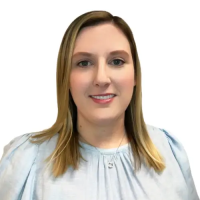

As we age, we find ourselves looking at our future in retirement and the tools we may have available to help us reach our goals in the next stage. Many of us have built substantial equity in our homes. Reverse mortgages have emerged as a valuable financial tool that allows homeowners aged 62 and older to tap into their home equity while continuing to live in their homes. This equity may be used to help realize the comfortable retirement years that we’ve envisioned. Read on as we explore the concept of reverse mortgages, their benefits, considerations, and how they can help seniors unlock their home equity to enhance their retirement lifestyle.
Understanding Reverse Mortgages:
To begin, let's demystify reverse mortgages. Unlike traditional mortgages where homeowners make monthly payments, reverse mortgages allow seniors to convert a portion of their home equity into cash without the need to sell their homes. The money received is a loan – not taxable income – where no payment is required until all borrowers on the loan permanently leave the property.
Benefits of Reverse Mortgages:
Reverse mortgages offer several benefits for seniors:
- Access to Home Equity: Accumulated equity in the home can supplement retirement income, cover unexpected expenses, fund home improvements or healthcare costs, or provide a line of credit for use as needed.
- No Monthly Mortgage Payments: One of the key advantages of a reverse mortgage is that homeowners are not required to make monthly mortgage payments, decreasing monthly obligations and leaving more income available for other use. The loan is typically repaid when the home is sold.
- Continued Homeownership: Reverse mortgage borrowers continue to own their property, remaining in their home as long as they wish provided loan terms are followed, the property is kept in good repair, and taxes, insurance, and home owners’ association dues (if required) are paid current.
Considerations and Eligibility:
Before considering a reverse mortgage, it's crucial to understand the eligibility requirements, loan types, and potential risks involved:
- Age Requirement: Borrowers must be at least 62 years of age to qualify for a reverse mortgage.
- Loan Types: There are different types of reverse mortgages, including federally insured Home Equity Conversion Mortgages (HECMs) and proprietary reverse mortgages offered by private lenders.
- Financial Assessment: Lenders will evaluate the borrower's income, credit history, and ongoing obligations to ensure they can meet their existing debts and expenses associated with the property (taxes, insurance, homeowners’ association dues, utilities).
- Counseling: Seniors are required to undergo counseling from a HUD-approved counselor to ensure they fully understand the reverse mortgage programs and its implications.
Using Home Equity Wisely:
Reverse mortgages provide seniors with the opportunity to utilize their home equity strategically:
- Supplement Retirement Income: By receiving monthly payments or a lump sum, seniors can bolster their retirement income, giving them greater financial stability.
- Home Modifications: Seniors can use the funds to make home renovations and modifications that promote aging in place, such as installing grab bars or ramps for accessibility.
- Healthcare Expenses: Reverse mortgages can help cover medical bills, long-term care expenses, or healthcare services that may arise in retirement.
- Eliminate a monthly mortgage payment to free up income for other needs and to improve quality of life.
Repaying the Loan:
When the last borrower on the loan permanently leaves the home, typically due to selling, moving, or passing away, the reverse mortgage becomes due. If the borrower’s family would like to keep the home, as with any mortgage, the loan balance will need to be paid off either with cash or by a refinance of the balance of the loan. If the family is not interested, the loan can be repaid through the sale of the home. Any equity in the property will belong to the homeowner or their heirs. One of the features of a HECM is that the borrower can NEVER owe more than the balance of the loan. HECMs are FHA insured loans that will pay off any funds remaining if the loan balance exceeds the value of the property when property is sold.
Working with a Reputable Lender:
Choosing a reputable lender is vital when considering a reverse mortgage. Ensure you work with an experienced mortgage professional who is knowledgeable about the intricacies of reverse mortgages and can guide you through the process. Dealing with a local lender allows the borrower to interact in with the lender in person to help answer questions.
Reverse mortgages can be a valuable financial tool for seniors to unlock their home equity and manage their retirement lifestyle. Having worked hard to maintain their property and pay diligently on their mortgages over the years, seniors have the ability to enjoy the benefits of the hard-earned equity that they’ve created. It's essential to carefully consider the eligibility requirements, loan types, and details of the program. Consulting with a mortgage professional and undergoing counseling will help to make an informed decision that aligns with your retirement goals and financial well-being.
This is not a commitment to lend. All loans subject to program guidelines including credit and property approval. If refinancing an existing loan, the total finance charges may be higher over the life of the loan. Programs, rates, terms, and conditions are subject to change without prior notice at the sole discretion of Benchmark Mortgage Companies, an affiliate of Tidewater Home Funding, LLC.

